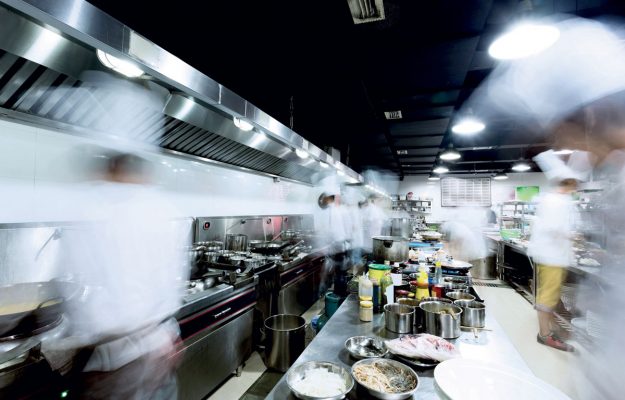Among threats to challenge the ordinances, disputes between Government and Regions, discussions on the parameters that have established what, to date, are the different areas of the country according to the Covid situation, from tomorrow, November 6, the new Ministerial Decree, which will be in force at least until December 3, 2020. For catering, from the point of view of regulations, in the “yellow zone” nothing changes: all open until 6 p.m., then the closure with the possibility of take-away and home delivery, but only until 10 p.m., the time when the “curfew” is set at the national level. In the “orange zone”, on the other hand, only home delivery and take-away remain safe, as well as in the “red zone”, where only food and basic necessities stores remain open. This is, in a nutshell, the picture closely linked to restaurants, bars and catering in general, in the summary, at WineNews, by the Lawyer Marco Giuri of Florence. Certainly, economically, this is a new, very hard blow to the catering sector, and to the entire food and wine supply chain.
“A collapse, in the next 30 days is expected to suspend the activity of 90,000 public exercises, 27% of the total, with 1.6 billion euros less consumption and 306,000 workers forced home. All this in the five red zones, where the most restrictive measures will be applied”, points out Fipe/Confcommercio, in a framework that, therefore, aggravates the estimate of losses for the sector, until now assumed to be around 34 billion euros, on a 2019 turnover of 86 billion euros. For the agricultural sector, Coldiretti estimates, the loss will be a further 3.6 billion euros, with many local forced to close, as well as 5,000 farms in the “red” regions (now Lombardy, Piedmont, Calabria, Valle d’Aosta), and also for this reason Coldiretti itself, as announced by the Government, has asked to increase the scope and speed of intervention of the so-called “Ristori Decree”.
“The perennial uncertainty that unites citizens and companies increase discomfort at all levels. The new here and there lock-down will have an even more devastating impact on our companies. An example for all: we had assumed a reduction of around 30% of the turnover of our companies in the out-of-home - bars, restaurants, clubs, hotels - in 2020. This figure will have to be revised upwards today with heavy repercussions on investments and fiscal contributions to the State for 2021”, says president Federvini Sandro Boscaini, whose voice is added to that of the Chianti Consortium, one of the largest in Italy, which had already reported that the closure at 6 p.m. means cutting 70% of wine consumption, already heavily affected outside the home, in the period in which the measure will be in force.
And there are those who turn to Europe, like Massimiliano Giansanti, at the head of Confagricoltura, who wrote to the EU Commissioner of Agriculture Janusz Wojciechowski, urging further measures also at EU level: “the closure, in particular, of bars and restaurants will have a negative impact on sales and exports of some products that will not be offset by the increase in domestic consumption. The impact of the new measures will be significant, considering that non-domestic food consumption amounts to about 80 billion euros per year, with an incidence of 30% of the total. Some Member States have already requested new EU aid to the beef sector, after those already granted in March - explains Giansanti - the current difficulties require us to proceed with a global vision, mobilizing extraordinary funding in the framework of the Union budget for the coming year”.
Meanwhile, as news arrives about the first new excellent closures, as Chef Enrico Bartolini, the most starred chef in Italy, has written, announcing on Facebook the closure, “until a date to be defined”, of all the restaurants of which he is a guide, starting from the three stars Michelin Mudec in Milan, also requires an ad hoc reflection on wine tourism, which, for some wineries, represents an important slice of turnover, and in particular on the theme of tastings and visits to the cellar, emphasizes the lawyer Marco Giuri (Studio Giuri of Florence): “the wine tourism sector is a mix between catering, accommodation and activity similar to that of a museum visit or exhibition. With the stop to these latter activities, even in the yellow areas, visits to the winery tout court are also to be suspended. Could remain active, in line with the Dpcm and respecting all the rules already in force on spacing and hygiene, the company stores, including the tasting activity”.
Copyright © 2000/2026
Contatti: info@winenews.it
Seguici anche su Twitter: @WineNewsIt
Seguici anche su Facebook: @winenewsit
Questo articolo è tratto dall'archivio di WineNews - Tutti i diritti riservati - Copyright © 2000/2026







































































































































































































